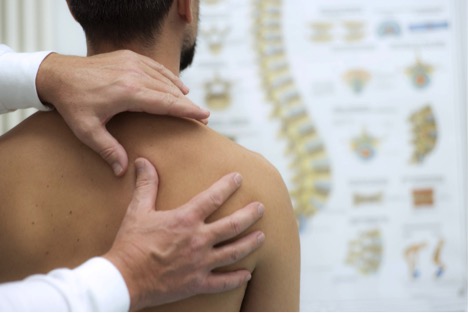The stress and physical pain that occurs as a result of the aftermath of suffering an injury can delay recovery. Learn how to heal faster.

Every year, around 6.8 million people fracture their bones in the United States of America. To add to that, more than 3 million people suffer car accident injuries as well. Every day, someone somewhere suffers a fresh, new injury that changes their life, at least momentarily, if not permanently.
And when you’ve been injured, it is natural to want to know how to heal faster and get back to your normal life. Now, while you do need some time to make a full recovery, there are a few things you can do to expedite the process.
Let’s have a gander at what those are!
1. Understand Your Injury
The best thing you can do for yourself is to get a thorough understanding of what happened to you. If it’s a fracture, have a deeper look into actually happens during a fracture. This will help you understand the healing mechanisms in your body, and prepare you for any setbacks that come your way.
If you know someone who’s had an injury similar to yours, be sure to talk to them about their own experiences. Ask questions, do your research and learn as much as you can.
Make sure your doctor is someone you can trust, and who you are comfortable with. If you don’t already have one or are having trouble finding one, sites like https://workerscompdoctor.com/find-a-physician/ can help you find qualified specialists within your vicinity.
2. Follow Your Treatment Plan
According to experienced medical experts at Icon Medical Centers, once you do find a doctor and get your diagnosis, it’s time to put some trust in your treatment plan. Now, if you suspect that your treatment plan is not going to work, or that it might do more harm than good, that’s fine. Get a second opinion.
However, if you’re simply slacking off, or not paying attention to your medication, it’s only going to deter your body from healing. So, make sure you stay focused on your doctor’s instructions, maintain a certain discipline to your medication schedule and get your regular check-ups.
3. Rest
Your wounds, burns, scabs and broken bones can only heal when your body is resting. Yes, not doing anything fun or exciting can be frustrating, not being able to run around with your kids is not fun, but the better you rest, the sooner you will be able to do all those things again.
So, embrace your time away from work, take a break and let your body heal the way it was meant to!
4. How to Heal Faster with Good Nutrition
Medication and rest are important, but so is nutrition. Make sure you’re following the diet prescribed by your doctor or nutritionist and try to incorporate more nutrient-dense foods into your meals. Do your research on nutrients that help heal your injuries.
For example, if you’ve fractured your leg, your body would need good sources of calcium to help fix your bones. For burns or scabs, your body might need protein. Similarly, with muscle tears, your body would require good sources of proteins and vitamins.
5. Embrace Exercise with Caution
Exercising during recovery is all about balance. On the one hand, you don’t want to exert yourself too much, and on the other, a little bit of exercise can go a long way in helping you regain your strength.
So, before you kick start any new exercise regime, make sure you run your plan by your doctor. Alternatively, finding a good physiotherapist can also help you make strides in the healing process. This is especially true for muscle tears, sprains, fractures, joint or ligament injuries and any other injury that has had an impact on your movement.
6. Keep Your Wounds Clean
If you’re dealing with scabs, burns or cuts, make sure you pay special attention to your dressing. Getting grime inside the wound, can have devastating consequences, exacerbate your situation and lead to infections. Make sure you clean the area regularly, change your dressing as frequently as prescribed by your doctor and keep the rest of yourself clean too.
Most wounds don’t react well to your normal body washes or soaps, so make sure you invest in a good medicated cleanser or ask your physician to recommend one.
7. Stay Away from the Cigarettes
You might be familiar with the link between smoking and cancer, but did you know that smoking could potentially slow down the wound healing process?
Since smoking causes your arteries to narrow and reduces your body’s ability to absorb nutrients, consistent use of cigarettes can slow down your rate of recovery. So, if you want to speed up your healing process, it would be smart to stay clear of cigarettes, or at least reduce your consumption during your period of recovery.
Setting Realistic Expectations for Your Recovery
Now that you know how to heal faster, don’t forget that “faster” is subjective and recovery doesn’t happen over-night. Be kind to your body, and allow yourself the space to heal in your own time.
All bodies are different and work at their own pace. So allow yourself that breathing room, be as patient as you can and make the most of your time off. Recovery can be a great time to sit back and reflect on important decisions, re-evaluate your life, discover new hobbies and do a bit of soul-searching or introspection as well.
Like this article? Share it with someone who needs it on Facebook, Twitter or any of your social media accounts! You never know who you might help.
Read More:
Injured? Had a surgery? Here’s how you can kick-start your life again
How to navigate a birth injury
Low impact workouts for injury recovery
Tips for taking care of yourself after a work injury

